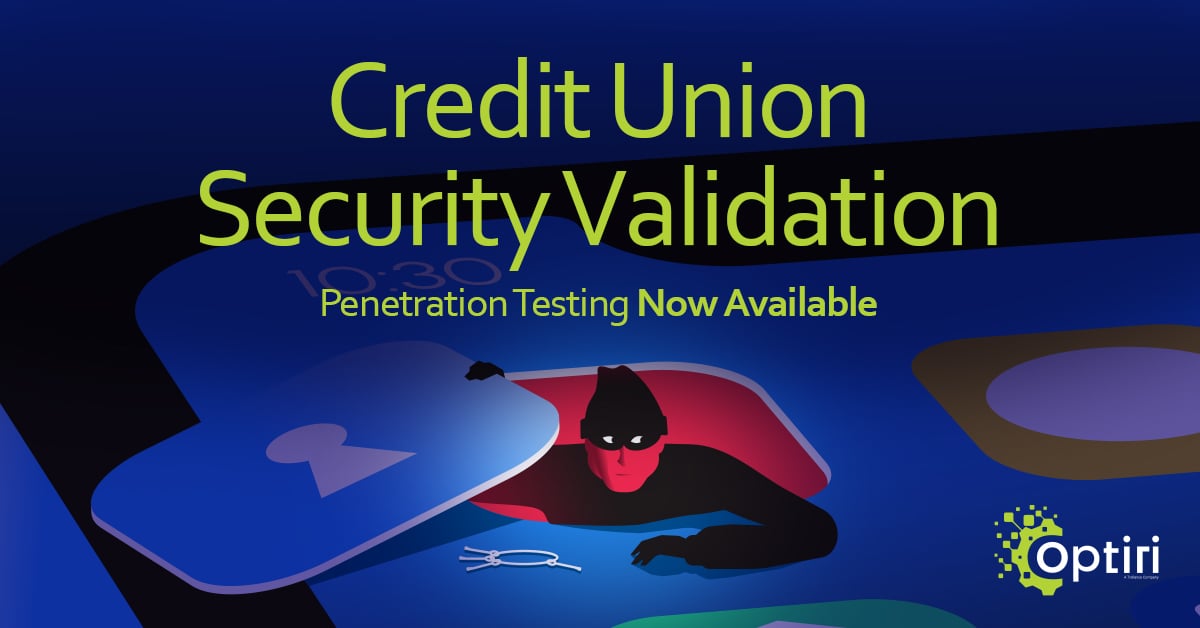Penetration Testing is Now Available From Optiri
The IT and Cybersecurity solutions provider is now offering Penetration Testing as one of its key offerings.
2 min read
Shane Butcher : Nov 4, 2025

Credit unions, like organizations in many sectors, face growing challenges in protecting critical IT infrastructure from internal and external threats. Strategic cybersecurity leadership – typically provided by a Chief Information Security Officer (CISO) – is essential for safeguarding assets and member data, ensuring regulatory compliance and driving continuous improvement in security practices.
A Virtual CISO (vCISO) is an outsourced information security expert who leverages extensive experience to help credit unions build and manage a mature information security program. Services may include compliance management, risk assessment, audit coordination, security planning, third-party engagement and program development or review.
If your environment contains sensitive information – which as a credit union, it does – the National Credit Union Administration (NCUA) requires that data to be secured, protecting both the credit union and its members. When deciding between an onsite CISO and a vCISO, consider the following benefits of the virtual model:
1. Cost Savings
Hiring a full-time CISO involves significant expenses – recruitment, salary and benefits. A vCISO can reduce costs by 30%-40% or more, as the resource is shared across multiple credit unions. You also gain access to a team with specialized expertise in credit union security.
2. Location Flexibility
A vCISO eliminates geographic constraints, allowing your credit union to access top-tier security talent nationwide, without incurring local footprint or relocation costs.
Not all credit unions require a full-time CISO. With an vCISO, you can tailor the scope of services – such as NCUA audits, program maturation or security control reviews – and pay only for what you need, with the flexibility to adjust as requirements evolve.
A vCISO provides executive-level guidance, managing or complementing your existing security team and offering upskilling opportunities. These experts are prepared to engage with boards and leadership, helping to define and execute a roadmap for enhanced security.
Information security and data privacy regulations are complex, and NCUA guidelines are specific to credit unions. A vCISO specializes in these areas, assessing your current security posture, identifying gaps and developing actionable plans to achieve compliance and protect member data.
Your vCISO will engage with multiple credit unions and work as part of a team that services even more credit unions. This gives your organization the benefit of practices and insights gained across a wider portion of the industry. From current examination trends to the latest threats to credit unions, you will benefit from a deeper pool of knowledge.
An vCISO delivers a comprehensive suite of information security services tailored to the needs of credit unions. These services are designed to strengthen your security posture, ensure regulatory compliance and provide strategic leadership – without the overhead of a full-time executive. vCISO’s can provide support in the following areas:

The IT and Cybersecurity solutions provider is now offering Penetration Testing as one of its key offerings.

How Credit Unions Move from Analysis to Real Continuity Decisions

For credit unions, an effective Business Continuity Management (BCM) Program is more than a regulatory expectation – it is a strategic capability...

The following is an article written by Optiri's Senior Director, Security, and Technology Consulting, Barry Lewis, CISSP. It originally appeared on...

Introduction Credit unions are built on trust and member service. But in today’s digital-first world, staying compliant, secure and efficient...

The following is an article written by Trellance’s Senior Director, Security, and Technology Consulting, Barry Lewis, CISSP. It originally appeared...